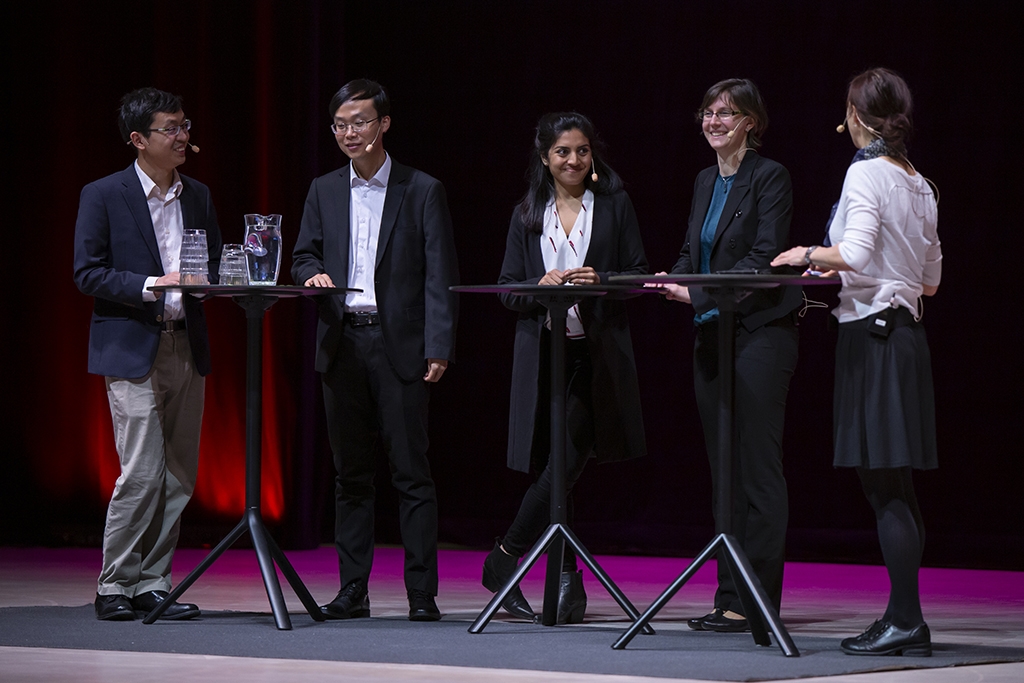Prize symposium 2019 – Roads to Research Excellence
More than 150 PhD students and scientists had gathered in anticipation of an interesting day with inspiring talks from the winners of this year’s Science & SciLifeLab Prize for Young Scientists. The symposium, Roads to Research Excellence, took place on december 12.
It has been a busy week for the winners of the 2019 Science & SciLifeLab Prize for Young Scientists. In addition to attending the Nobel prize ceremony – Grand Prize winner Longzhi Tan was also invited to the Nobel banquet, the winners visited SciLifeLab units in Solna and Uppsala, met with leading researchers in their respective fields and discussed research with high school students.
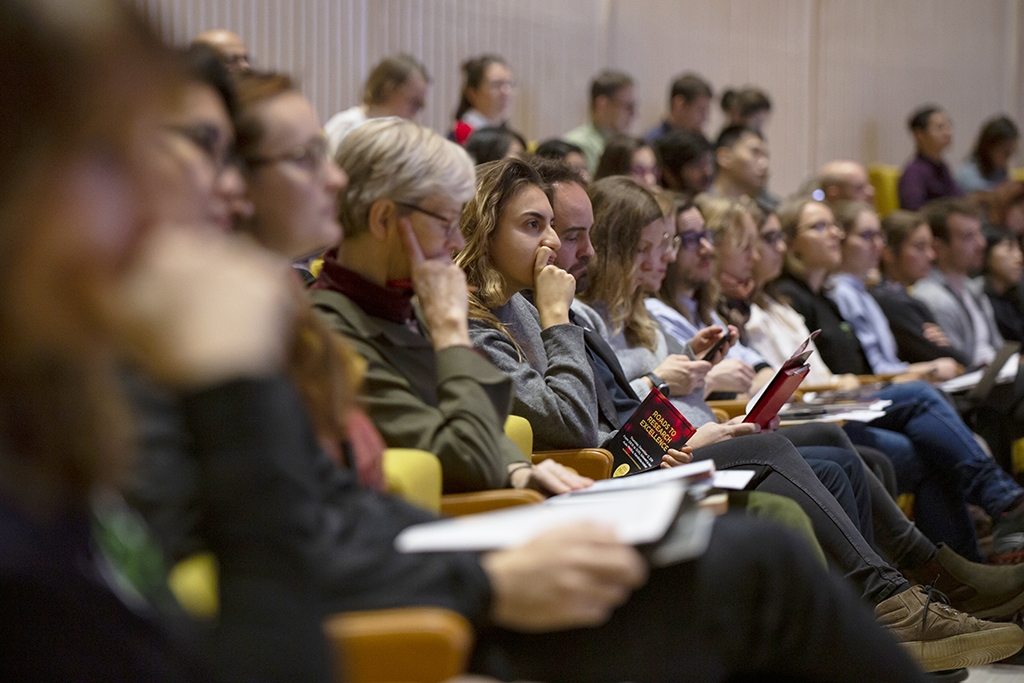
On Thursday, however, it was finally time for them to present their winning research during the Prize symposium in Aula Medica, Karolinska Institutet.
SciLifeLab Director, Olli Kallioniemi, started the day off with a short introduction and presentation of the award.
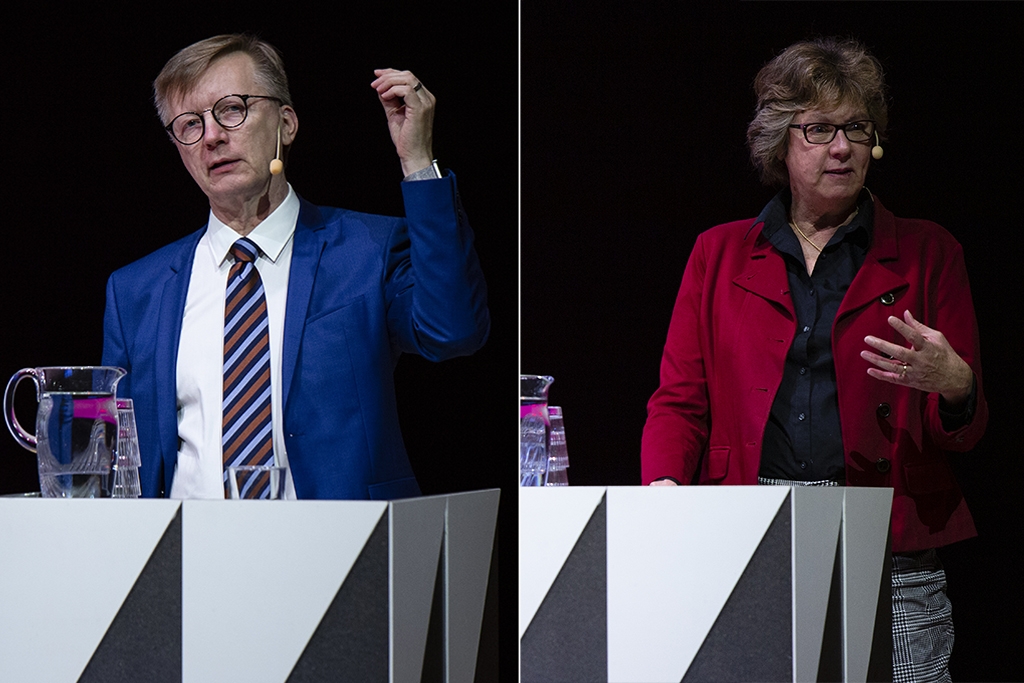 From left to right: Olli Kallioniemi and Valda Vinson
From left to right: Olli Kallioniemi and Valda Vinson
“The prize that we will celebrate today is jointly operated by Science and SciLifeLab and is generously sponsored by the Knut and Alice Wallenberg Foundation. It is an absolutely wonderful collaboration to celebrate some of the best young scientists around” said Olli Kallioniemi.
After a short speech from Valda Vinson, Senior Editor of Science, who also were responsible for selecting the winning essays, Claudia Cutter (KI), SciLifeLab Fellow and today’s moderator, introduced the first winner.
Barbara Klump from the Max Planck Institute of Animal Behaviour, Radolfzell, Germany, is the winner of the Ecology and Environment category and presented her essay, Of crows and tools: Tool-using crows, culture, and what it means to be human, which was about animal cognition and how certain species ecology and social structure shape their natural behavior.
“My next goal would be to try and bridge the two fields I have been involved with, the crow world and the parrot world. We still don’t really understand what in their behavior is driven by ecology, which is what I’m interested in, so I would really like to take a step back to take a more comparative approach to answer these questions” said Barabara Klump.
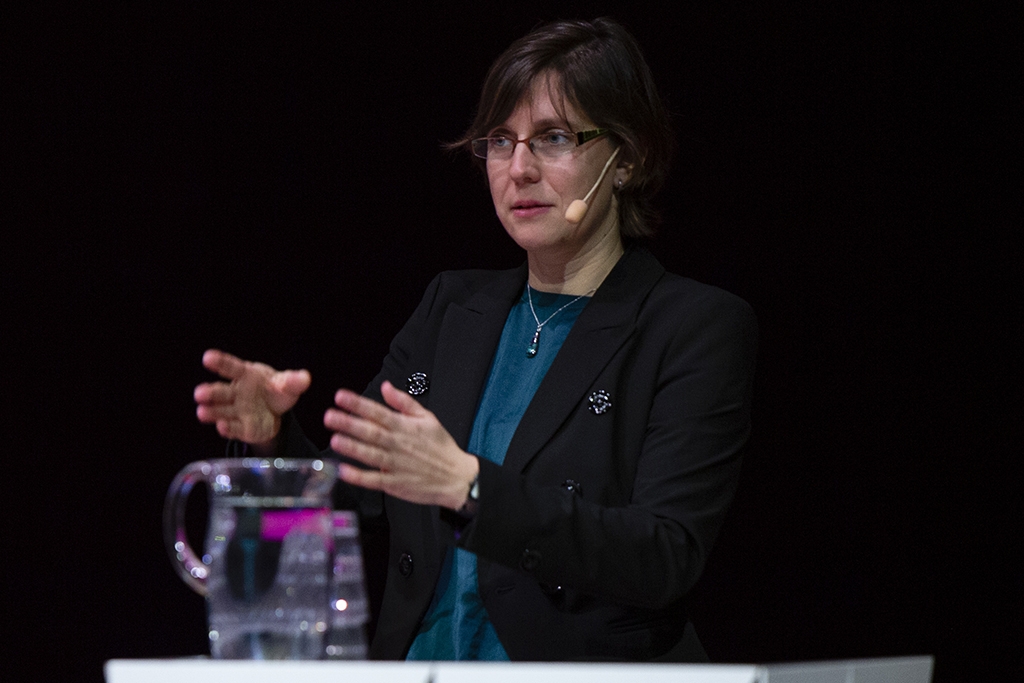 Barbara Klump
Barbara Klump
Cell and Molecular Biology category winner Zibo Chen (California Institute of Technology, USA) then presented his essay, Creating the protein version of DNA base pairing: Programmable and modular protein-protein interactions designed from scratch – an essay about designing proteins using hydrogen bonds and that could potentially be used for programmable protein self-assembly or to create synthetic signaling pathways.
“I have always liked building stuff from scratch. When I was young I played with LEGO and now I play with proteins” said Zibo Chen.
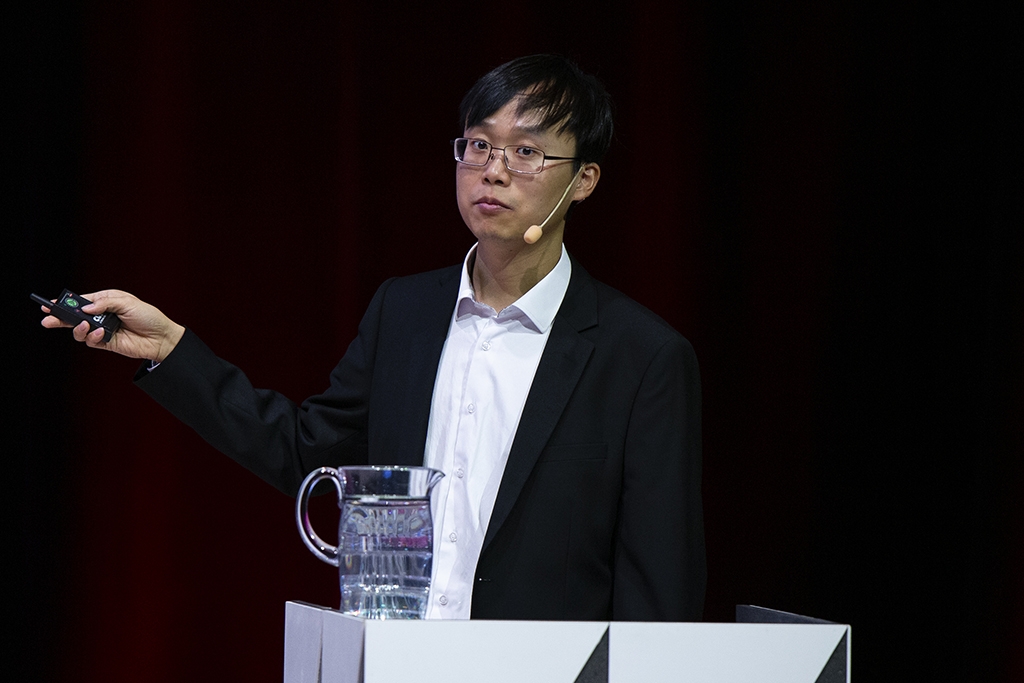 Zibo Chen
Zibo Chen
Zibo was followed by Humsa Venkatesh, winner of the Molecular Medicine category. She presented her essay, The neural regulation of cancer: Cancer hijack mechanisms of neural plasticity to promote malignant disease progression, which describes the relationship between bioelectric activity of neurons and tumor growth in the brain. Humsa also identified a way to slow tumor growth in vivo.
“I want to highlight that the mechanistic parallels between these malignant and normal interactions really underscores the extent to which gliomas can hijack this neuron circuitry and appreciating the electrical component of these cancers is going to be really important when developing novel therapies” said Humsa Venkatesh.
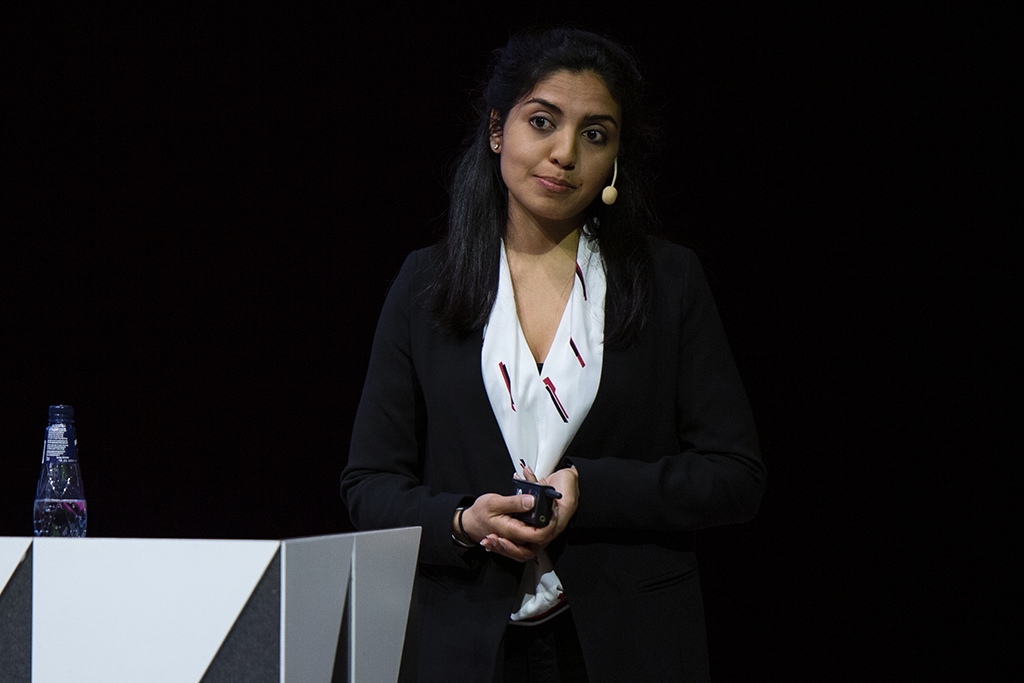 Humsa Venkatesh
Humsa Venkatesh
Grand Prize winner Longzhi Tan from Stanford University, USA, then gave a final presentation on his winning essay, Three-dimensional genome structure of a single cell: Chromosome organization in diploid cells reveals a structural basis for smell, which is about Dip-C, a new methodology that can reveal the three-dimensional chromosome structure of single cells.
“Stay positive no matter what difficulties you encounter during your research career. Mental health is a serious issue among graduate students world wide and we need to constantly remind ourselves that the most important thing is staying healthy and staying happy” said Longzhi Tan when asked about advice for young scientists.
 Grand Prize winner Longzhi Tan
Grand Prize winner Longzhi Tan
Following the presentation by the Grand Prize winner, it was time for the SciLifeLab Scientific Highlights 2019. Recurrent convergent evolution at amino acid residue 261 in fish rhodopsin by Erik Enbody (Uppsala University), Smart scanning for low-illumination and fast RESOLFT nanoscopy in vivo by Giovanna Coceano (KTH), The repertoire of maternal anti-viral antibodies in human newborns by Christian Pou (Karolinska Institutet) and miRTrace reveals the organismal origins of microRNA sequencing data by Wenjing Kang (Stockholm University).
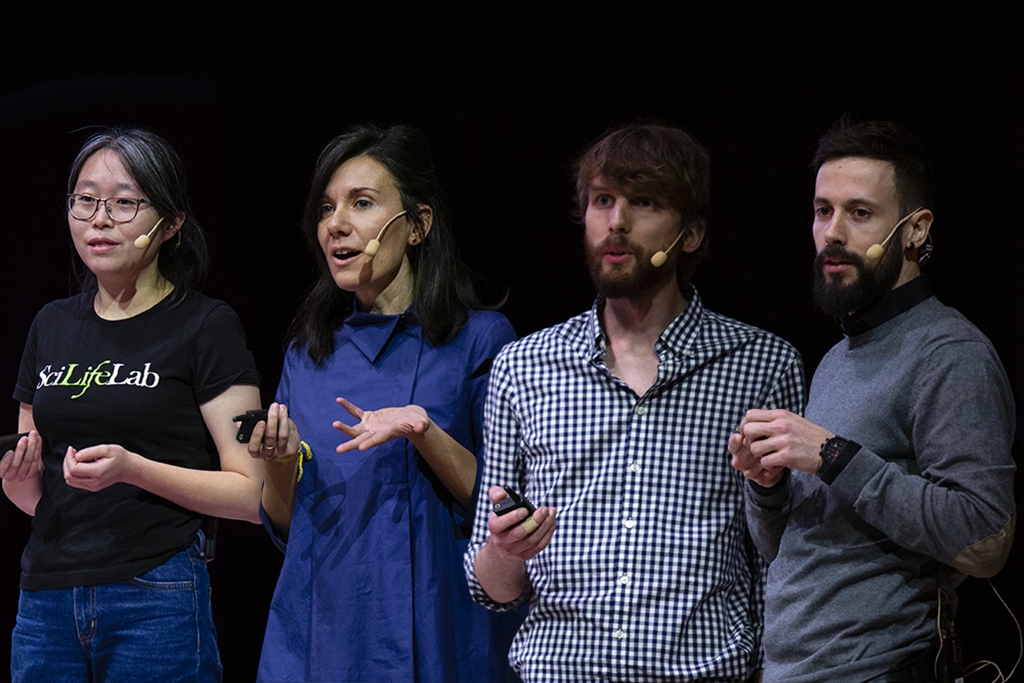 Picture from left to right: Wenjing Kang, Giovanna Coceano, Erik Enbody and Christian Pou
Picture from left to right: Wenjing Kang, Giovanna Coceano, Erik Enbody and Christian Pou
The day ended with a presentation by keynote speaker Lou Woodley (Center for Scientific Collaboration and Community Engagement, USA) on community-building within science. Lou explored how science might look if we took a more community-led approach.
“We need a community that is founded on trust, where we have shared responsibility for what we do together, where we can scale sustainably into the future, where innovation is the norm and where we are resilient enough to face the changes and difficult challenges that is going to be absolutely crucial for us to understand in the very near future” said Lou at the end of her speech.
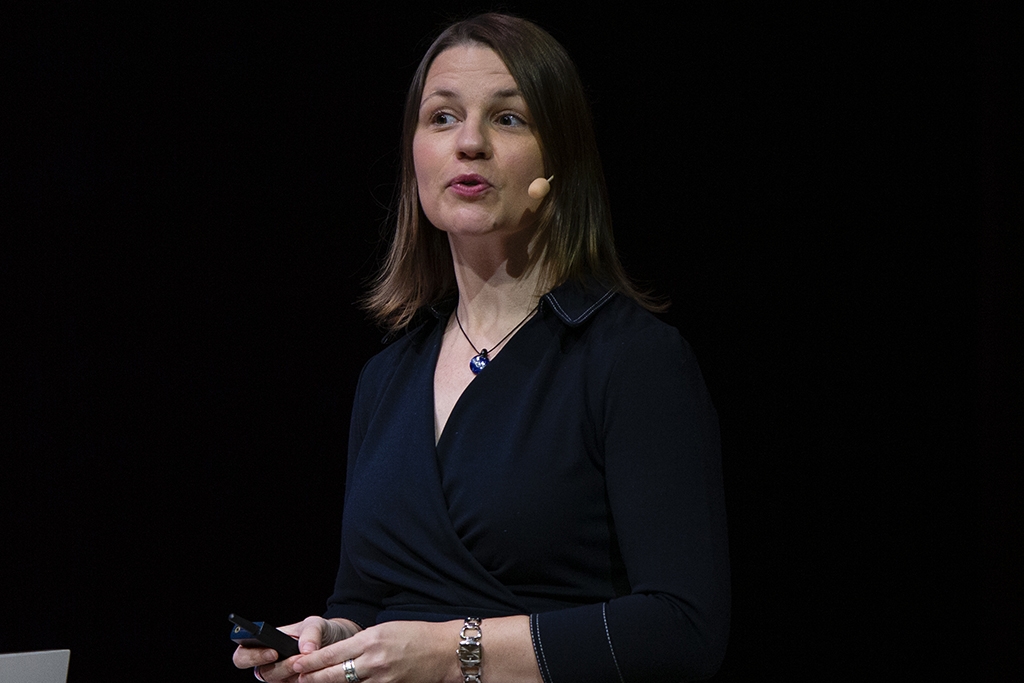 Lou Woodley
Lou Woodley
On Friday the winners will participate during the celebratory banquet taking place in the Hall of Mirrors at the Grand Hôtel in Stockholm, the original venue of the Nobel Prize festivities.
The Science & SciLifeLab Prize for Young Scientists is made possible through the kind support of Knut and Alice Wallenberg Foundation.
